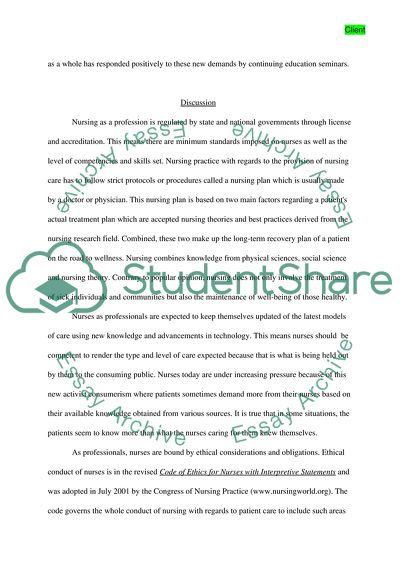Cite this document
(Nursing as a Profession Essay Example | Topics and Well Written Essays - 3000 words, n.d.)
Nursing as a Profession Essay Example | Topics and Well Written Essays - 3000 words. https://studentshare.org/health-sciences-medicine/1729737-religious-studies-bioethics
Nursing as a Profession Essay Example | Topics and Well Written Essays - 3000 words. https://studentshare.org/health-sciences-medicine/1729737-religious-studies-bioethics
(Nursing As a Profession Essay Example | Topics and Well Written Essays - 3000 Words)
Nursing As a Profession Essay Example | Topics and Well Written Essays - 3000 Words. https://studentshare.org/health-sciences-medicine/1729737-religious-studies-bioethics.
Nursing As a Profession Essay Example | Topics and Well Written Essays - 3000 Words. https://studentshare.org/health-sciences-medicine/1729737-religious-studies-bioethics.
“Nursing As a Profession Essay Example | Topics and Well Written Essays - 3000 Words”. https://studentshare.org/health-sciences-medicine/1729737-religious-studies-bioethics.


